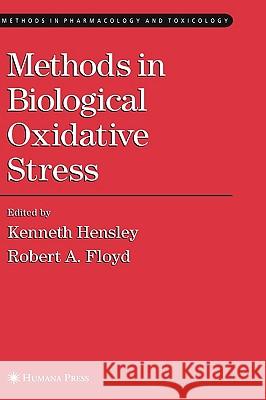Methods in Biological Oxidative Stress » książka
Methods in Biological Oxidative Stress
ISBN-13: 9780896038158 / Angielski / Twarda / 2003 / 216 str.
Oxidative damage appears to play a central role in the development of a wide range of tissue pathology, including neurodegenerative disease, drug side-effects, xenobiotic toxicity, carcinogenesis, and the aging process, to name just a few. Because of the centrality of oxidative processes to normal and abnormal tissue function, it has become imperative to develop appropriate analytical techniques to facilitate the quantitation of significant reactants. Without advances in methodology, corresponding advances in our knowledge of underlying biochemical events will be necessarily limited. Drs. Hensley and Floyd have done an outstanding job of assembling the work of world-class experts into Methods in Biological Oxidative Stress. The contributors have presented concise, yet thorough, descriptions of the state-of-the-art methods that any investigator working in the field needs to access. Mannfred A. Hollinger v Preface Free radicals and reactive oxidizing agents were once ignored as biochemical entities not worth close scrutiny, but are now recognized as causes or contributing factors in dozens, if not hundreds, of disease states. In addition, free radical metabolisms of xenobiotics have become increasingly important to pharmacologists. Accordingly, the need has arisen to accurately quantify reactive oxygen species and their byproducts. Methods in Biological Oxidative Stress is practical in scope, providing the details of up-to-date techniques for measuring oxidative stress and detecting oxidizing agents both in vitro and in vivo. The contributors are recognized experts in the field of oxidative stress who have developed novel strategies for studying biological oxidations.











